Descent-based slavery reports
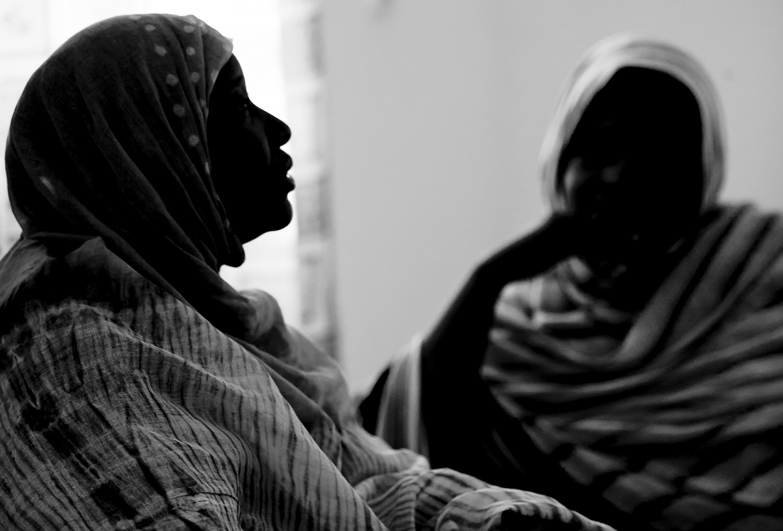
February 2022: Joint submission to the UN Special Rapporteur on contemporary forms of slavery – descent based slavery in Mali, Mauritania and Niger
A joint submission by Anti-Slavery International, SOS Esclaves, Temedt and Timidria for the UN Special Rapporteur on Slavery’s thematic report on slavery affecting persons belonging to ethnic, religious and linguistic minorities.
This provides evidence on descent-based slavery in Mauritania, Niger and Mali and pervasive discrimination against people considered of slave descent (or ‘slave-caste’) who are no longer under the direct control of their ‘master’.
Joint submission for the Universal Periodic Review of Niger, 38th session
A joint submission by Anti-Slavery International, ANTD (Association Nigérienne pour le traitement de la délinquance et la prévention du crime), and Timidria, for the Universal Periodic Review of Niger, 38th session. It provides information and recommendations on descent-based slavery; the impact of Covid-19 on slavery; discrimination against people of slave descent; access to education for children of slave descent; the worst forms of child labour in Niger including forced child begging of talibés (children who study at residential Quranic schools), children in descent-based slavery, and of child domestic workers; and the wahaya (so-called 5th wife) practice.
Submission on forced child begging and descent based slavery Oct 2020:
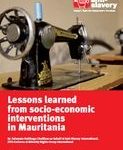
Lessons learned from socio-economic interventions in Mauritania
Anti-Slavery International, SOS-Esclaves, Minority Rights Group International and Salamata Ouédrago Cheikhou.
This study assesses the impact of three income-generating activities (IGA) projects implemented in Mauritania between 2017 and 2019 by partners Anti-Slavery International, SOS-Esclaves and Minority Rights Group International (MRG). Convinced of the need to incorporate a socio-economic approach as part of the assistance given to survivors of slavery, Anti-Slavery and partners have endorsed investment in socio-economic initiatives to support the most vulnerable victims of slavery.
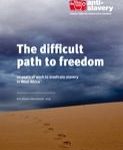
Difficult path to freedom: 10 years of working to eradicate slavery in West Africa
Anti-Slavery International.
Multiple human rights violations are suffered by people born into slavery. This report identifies the lessons learned over 10 years of programmes to combat descent-based slavery in West Africa. It analyses the programmes to support people who escaped slavery to build their lives in freedom and advocate for their rights. It also draws attention to the systemic problems facing the victims and the challenges to encourage the governments to implement comprehensive anti-slavery and anti-discrimination policies, that would bring freedom to all people affected by descent-based slavery.
August 2019: briefing to the ILO on Mauritania
This submission assesses Mauritania’s compliance with ILO Convention No. 29 on Forced Labour and the Protocol of 2014 to the Forced Labour Convention, with regard to the persistence of descent-based slavery in the country.
February 2019: submission to the UN Human Rights Committee on Niger
A joint submission by Anti-Slavery International and Timidria to the UN Human Rights Committee (hereafter the Committee) ahead of its examination of Niger’s second periodic report to the International Covenant on Civil and Political Rights. It provides information on descent-based slavery, the wahaya (so-called 5th wife) practice, worst forms of child labour in Niger including forced child begging of talibés (children who study at residential Quranic schools, daaras) and child domestic work, and stigma and discrimination against people of slave descent.
August 2018: submission to the UN Committee on the Rights of the Child on Mauritania
A joint submission to the UN Committee on the Rights of the Child by Anti-Slavery International, Minority Rights Group and SOS Esclaves ) ahead of the Committee’s examination of the combined third to fifth periodic reports of Mauritania at the 79th session (17 September – 5 October 2018). It provides information on children in descent-based slavery and discrimination against Haratine children and other children of slavery descent in Mauritania.
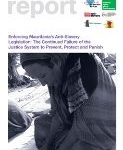
Enforcing Mauritania’s Anti-Slavery Legislation: The Continued Failure of the Justice System to Prevent, Protect and Punish
Anti-Slavery International, Minority Rights Group International (MRG), Society for Threatened Peoples (STP) and the Unrepresented Nations and Peoples Organization (UNPO)
Outlines the systematic failures of Mauritania’s justice system to provide redress to slavery victims.
Joint submission for the Universal Periodic Review of Mauritania, 23rd Session, October – November 2015
Anti-Slavery International, Minority Rights Group International & SOS-Esclaves
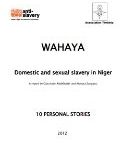
WAHAYA: Domestic and sexual slavery in Niger
Anti-Slavery International, Galy Kadir Abdelkader, Moussa Zangaou.
This report focuses on the ‘wahaya’ practice in Niger, whereby girls and women of ‘slave caste’ are bought and sold as unofficial wives. They are referred to as ‘fifth wives’, as they are additional to the four wives permitted to Niger, but they are not officially married to their master and therefore have none of the legal rights and protection to which legal wives would have recourse. ‘Wahaya’ are essentially slaves used for domestic labour and sexual gratification.
The report presents testimonies from individual wahaya to expose the shocking realities of the practice and calls for efforts to end these forced unions.
Mauritania Land Report: Programme de prevention et de resolution des conflicts fonciers intercommunautaires en Mauritanie
Anti-Slavery International.
Traditionnellement, les mauritaniens d’ascendance esclave (principalement les Haratines) ont été privés du droit de posséder des terres ; un grand nombre de Haratines continue à travailler les terres des clans de leurs anciens maîtres. Pendant les années 80, les réformes aux lois foncières furent introduites envisageant l’appropriation et la redistribution des terres par l’Etat, en vue de permettre aux Haratines de réclamer les droits sur les terres qu’ils cultivaient. Toutefois, à cause de l’application incomplète et biaisée des réformes, les terres affectées par l’Etat appartenaient surtout aux communautés ordinaires, et celles-ci furent redistribuées aux élites beidanes. Ensuite, après les expulsions de 1989, les terres des négro-mauritaniens forcés à quitter le pays furent souvent accordées aux Haratines.
Aujourd’hui, alors qu’un nombre croissant de personnes d’ascendance esclave cherche à posséder des terres, et alors que les réfugiés négro-mauritaniens retournent pour réclamer leurs propriétés foncières, les droits à la terre sont plus conflictuels que jamais. Ce rapport analyse l’échec des réformes foncières, les divers types de conflits fonciers qui existent, et les mesures qui pourraient prévenir et résoudre de tels conflits.
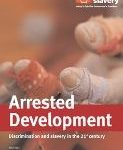
Arrested Development: Discrimination and slavery in the 21st Century
Anti-Slavery International, Mike Kaye.
Discrimination is a pivotal part of slavery because it allows people to disengage their humanity and justify or tolerate the violation of other people’s human rights. Discrimination also limits certain groups’ access to education, jobs and healthcare, leaving them to subsist at the margins of society where they are extremely vulnerable to enslavement as they look for ways to provide for themselves and their families. This publication highlights what action needs to be taken by governments and other international agencies to ensure that every human being – without exception – should be able to live a life free from slavery. ISBN:978 0 900918 66 7
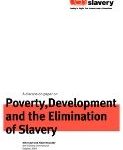
Poverty, Development and the Elimination of Slavery
Anti-Slavery International, Mike Kaye, Aidan McQuade
Discussion paper.
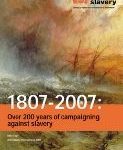
1807-2007: Over 200 years of campaigning against slavery
Anti-Slavery International, Mike Kaye.
This publication gives an overview of the Transatlantic Slave Trade and considers the factors that led isolated voices of protest to develop into a popular movement in less than 20 years, helping to bring about the abolition of the slave trade in 1807. It also traces how after the end of the Transatlantic Slave Trade, new forms of slavery began to manifest themselves and how they were challenged through popular campaigns and the development of international standards to prohibit them. It also considers what action needs to be taken to free the millions of people in slavery today. ISBN 0 900918 61 6
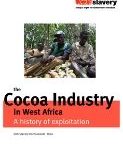
The Cocoa Industry in West Africa: A history of exploitation
Anti-Slavery International.
This report provides an in-depth analysis of how cocoa is produced and how child and slave labour enter its chain of production. It relates the history of cocoa production and explores how this commodity fits within a global market. Drawing on a wide range of sources, it concludes with recommendations for consumers, the chocolate industry and governments on actions needed to address this serious problem.
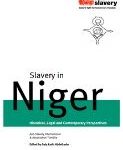
Slavery in Niger: Historical, legal and contemporary perspectives
Anti-Slavery International, Association Timidria.
Study on slavery in Niger.
Also available as a PDF download in French.
Abolishing Slavery and its Contemporary Forms: Weissbrodt Report
Paper prepared by David Weissbrodt and Anti-Slavery International.
Office of the United Nations High Commissioner for Human Rights 2002
Ref: HR/PUB/02/4